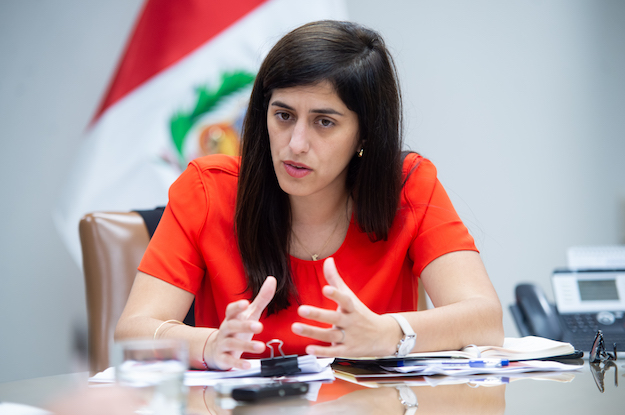The G-20 group of industrialized nations represents 75 percent of international trade, two-thirds of the world’s population and 85 percent of global GDP. So at a time of significant tension in global politics – on everything from trade to climate to international development – there’s much at stake for Argentina’s G-20 presidency, which runs until December.
“The present context is a bit complicated,” said Pedro Villagra Delgado, the Argentine Ambassador to the UN and G-20 sherpa in charge of coordinating meetings during the country’s presidency. “The fact that we are not one of the main actors gives us the possibility to be a sort of referee, instead of at the center of the disputes.”
Villagra and other delegates will meet in Ushuaia from May 2-4 in preparation for the G-20 summit later this year. Ahead of the meeting, AQ spoke to Villagra about the challenges Argentina hopes to address during its presidency. This interview has been edited for clarity and length.
What are the biggest challenges facing Argentina in its presidency of the G-20?
One issue that could affect G-20 negotiations is climate change. There was general consensus in 2016 after the Paris Agreement, then the United States decided that it’s not in its best interest to implement the deal.
What we have to try to do with the G-20 presidency is to work between the lines to allow the United States to come back to the G-20’s position, and to at least address the major climate issues that are of everybody’s concern.
There are also questions regarding taxation of the digital economy, with disagreements over whether a gradual or rapid approach would be better. The same happens for other areas, such as energy transitions. Some countries believe we have to completely cease using fossil fuels right away, others think there has to be a transition leading to the use of cleaner methods, or a mix of renewable energy and the sources of energy that already exist.
What are the biggest challenges for Latin America? How will Argentina approach the region?
President Mauricio Macri has said many times that Argentina will bring a Southern perspective to the G-20. We don’t claim that Latin America has given Argentina a mandate, but certainly we are going to represent a view from the region.
To that effect, we’ve invited Chile to participate in the meetings, and also Jamaica representing the Caribbean Community (CARICOM). It will be the first time a Caribbean country attends the meetings.
Before taking the presidency, the first outreach activity we had was a meeting with Latin American countries. We wanted their concerns to be taken into consideration at the G-20. We also saw that their interests were aligned with our own priorities. For example, we all need inclusive development that allows all sectors of society to benefit. We also need to push for more investment in infrastructure. Not only infrastructure in a traditional sense, like roads and buildings, but also connectivity.
What has Argentina accomplished to this stage in its presidency?
We’ve already reached a framework for agreement on financial issues, during the first meeting of the G-20 finance ministers. Particularly when it comes to private sector in areas such as infrastructure, it’s helpful to have standardized agreements across countries, with clear rules that apply to financial agreements.
What are your expectations for the upcoming meeting in May?
It would be a success if we could all agree on the need to act collectively in such areas as access to health care or the future of work, which are essential for future generations. If they can come to agreement, the G-20 countries actually have the ability to push forward an agenda on these issues that can be successfully implemented.
What is the value of the G-20 as an organization?
The added value of the G-20 is consensus. It is a forum with a limited number of members, but from a systemic point of view they are important. These countries always have a critical role in creating the rules that regulate the international community. Argentina’s role now, as any presidency’s, is to help foster that consensus.
—
Hernández-Tapia is an editor at Americas Quarterly








